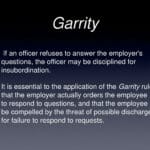Adverse possession, often referred to as “squatters’ rights,” is a legal concept in Wisconsin that allows someone to claim ownership of another’s property through long-term occupation. This comprehensive 2024 guide provides a clear, step-by-step explanation of Wisconsin’s adverse possession laws, offering practical advice for both landowners and potential squatters.
What is Adverse Possession?
Adverse possession is a legal doctrine that allows a person to acquire legal title to land owned by someone else by meeting specific criteria related to continuous and exclusive possession of the property. While the term “squatters’ rights” is often used colloquially, the legal process of adverse possession requires more than simply residing on the property. Understanding Adverse Possession: Could Someone Really Just Take My Land?
Essential Criteria for Adverse Possession in Wisconsin
Wisconsin law establishes five distinct requirements that must be met for a successful adverse possession claim. These criteria are cumulative, meaning all five must be satisfied. The absence of even one element can invalidate the claim.
Hostile Possession: This term can be misleading. It doesn’t imply aggression, but rather occupation without the owner’s express permission. Even seemingly innocuous actions like planting a garden or erecting a fence without consent can be considered hostile. The squatter’s intent isn’t usually relevant under Wisconsin law; the action itself is what matters.
Actual Possession: The claimant must physically use the land in a manner consistent with typical ownership. This might involve building a structure, cultivating crops, or regularly maintaining the land. Sporadic visits or simply storing items on the property will likely be insufficient to demonstrate actual possession.
Open and Notorious Possession: The occupation must be visible and readily apparent to any reasonable observer. Concealment or secrecy undermines an adverse possession claim. The occupation must be so obvious that a diligent owner would be aware of it during a routine property inspection.
Exclusive Possession: The claimant must occupy the land exclusively, excluding both the legal owner and the general public. Sharing use of the property, even occasionally, can weaken the claim. The claimant’s use must demonstrate complete control over the property, similar to a rightful owner’s exclusive use.
Continuous Possession: Wisconsin requires an uninterrupted possession period of 20 years. However, minor interruptions, such as short vacations or seasonal absences, generally will not defeat a claim. The continuity requirement focuses on a sustained pattern of occupancy reflecting typical ownership. Recent court decisions suggest that the interpretation of “continuous” may vary depending on the specific facts of each case.
Color of Title: A Potential Shortcut
“Color of title” refers to a situation where the claimant possesses a document that appears to grant ownership but is legally flawed. This flaw could range from a missing signature to an incorrect property description. In Wisconsin, color of title can significantly reduce the required possession period from 20 years to 10. While color of title strengthens a claim, it does not guarantee success; all other adverse possession criteria must still be met. Color of Title: A Potential Shortcut to Ownership
The Significance of Property Taxes
While not legally required for adverse possession in Wisconsin, paying property taxes can bolster a claim. It demonstrates an outward manifestation of ownership and intent to control the property, offering compelling evidence in court. This is particularly relevant when combined with color of title, potentially reinforcing the appearance of legitimate ownership. Property Taxes: A Strong Supporting Argument, But Not a Requirement
Government Land: Immune to Adverse Possession
Adverse possession claims cannot be made against government-owned land in Wisconsin. This protects public lands intended for community use from private acquisition through adverse possession. Government Land: Beyond the Reach of Adverse Possession
Squatting vs. Trespassing: Understanding the Difference
Squatting doesn’t inherently constitute trespassing. Trespassing arises when a landowner explicitly prohibits occupancy and takes legal steps to remove the squatter. Until such action is taken, the squatter’s presence, while potentially leading to an adverse possession claim, is not legally considered trespassing. Squatting vs. Trespassing: Knowing the Difference
Protecting Your Property: Advice for Landowners
Landowners can take proactive measures to protect their property from adverse possession claims:
Post “No Trespassing” Signs: Visible signage clearly communicates that unauthorized occupation is prohibited.
Regular Property Inspections: Routine inspections help identify potential adverse possession situations early on.
Swift Action Against Unauthorized Occupants: Promptly addressing unauthorized occupancy, including consulting with legal counsel for eviction proceedings, prevents potential claims from solidifying. Protecting Your Land: Proactive Steps for Landowners
Pursuing an Adverse Possession Claim: Advice for Squatters
Claiming ownership through adverse possession requires formally filing a claim in court. This necessitates providing compelling evidence demonstrating fulfillment of all five criteria. Making an Adverse Possession Claim: Steps for Potential Squatters Gathering documentation like property tax records, photographs, surveys, and witness testimonies is crucial. Given the complexities of adverse possession law, consulting with an experienced real estate attorney is highly recommended.
Key Differences in Adverse Possession Laws Across States
Adverse possession laws vary significantly from state to state. Timeframes for continuous possession range from as little as five years in some states to 20 years in others, like Wisconsin. Requirements regarding property taxes and the impact of “color of title” also differ, highlighting the importance of consulting local legal resources. Where are the shortest squatter’s rights?
Frequently Asked Questions (FAQs)
Q: Can I claim abandoned property through adverse possession?
A: Simply being abandoned doesn’t make property automatically claimable. All five adverse possession criteria must be met, including the required period of continuous possession.
Q: What happens if the legal owner discovers the adverse possessor before the time period is met?
A: The owner can take legal action to evict the squatter, halting the adverse possession process.
Q: Does paying property taxes guarantee a successful adverse possession claim?
A: No, while it strengthens the claim, it’s not a substitute for meeting all other requirements.
Conclusion
Adverse possession law in Wisconsin is complex and multifaceted. Ongoing research and court decisions may shift interpretations of these laws. This guide offers general information and should not substitute professional legal advice tailored to individual circumstances. Consulting a qualified legal professional is crucial for navigating the complexities of adverse possession.
Delve into the captivating life and accomplishments of Symbria Wright. Explore the profound significance and rich history behind the Ruach Hakodesh meaning and its impact.












